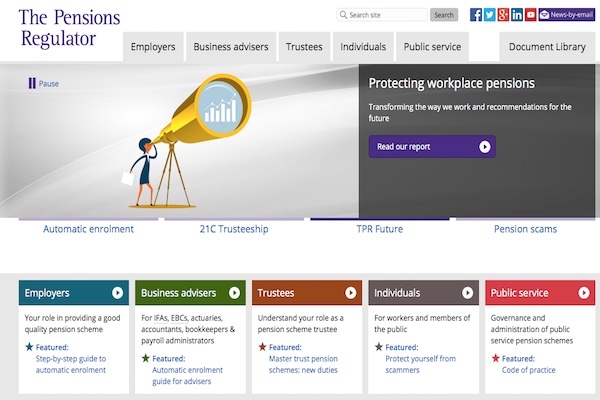The Pensions Regulator (TPR) has issued new guidance on DC investments.
The instructions now incorporate regulations, which come into force from October 2019 and October 2020, and responds to industry requests for further guidance in certain areas.
David Fairs, executive director of regulatory policy, analysis and advice at TPR, said: “Good governance and the management of investment risk in pensions schemes is fundamental to provide savers with a good retirement.
“Climate change is a core financial risk which trustees will need to consider when setting out their investment strategy. They will be obliged to show how they are taking this and other financially material considerations into account over the lifespan of investments.
“This guidance provides updates as well as clarity for trustees, including considerations when planning scheme investments.”
Guy Opperman MP, Minister for Pensions and Financial Inclusion, said: “Pension schemes have a significant part to play in tackling the climate emergency.
“They should be thinking about how they can meet the long-term interests of their members by driving new investment in important sectors of the economy – helping to deliver sustainable environments, jobs and communities.
“I welcome The Pension Regulator’s updated guidance which follows the government’s game-changing regulations clarifying and strengthening pension scheme trustees’ environmental, social and governance responsibilities.”
The guidance has been updated to reflect recent changes to legislation for DC schemes:
• Trustees must make their Statement of Investment Principles (SIP) – a scheme’s investment strategy - available free of charge on a website from October 2019.
• From October 2020 trustees must produce an implementation report which explains how trustees have followed and acted on the investment policies outlined in the SIP.
• The SIP must include the trustees’ policies on:
◦ financially material considerations including environmental, social and governance matters such as climate change.
◦ stewardship of investments, such as exercising rights (including voting rights) and engaging with activities in respect to the investments.
◦ the extent to which members’ views, including ethical, social and environmental, are considered when planning investments.
◦ arrangements with asset managers.
The updated guidance also provides clarity around what is meant by financial material considerations, stewardship and provides more information about preparing an implementation statement.

